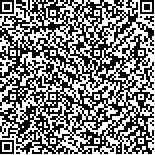丁利,李海峰,王慧,等.浙江省学龄前发育性协调障碍筛查阳性儿童睡眠状况的调查分析[J].中华物理医学与康复杂志,2024,46(2):160-164
扫码阅读全文

|
| 浙江省学龄前发育性协调障碍筛查阳性儿童睡眠状况的调查分析 |
|
| |
| DOI:10.3760/cma.j.issn.0254-1424.2024.02.013 |
| 中文关键词: 发育性协调障碍 学龄前儿童 睡眠 |
| 英文关键词: Coordination development disorders Preschool children Sleep |
| 基金项目:浙江省“尖兵”“领雁”研发攻关计划(2023C03003);浙江省基础公益研究计划(LBY21H170002);浙江省卫生健康科技计划(2021PY051) |
|
| 摘要点击次数: 3076 |
| 全文下载次数: 3001 |
| 中文摘要: |
| 目的 调查和分析浙江省学龄前发育性协调障碍(DCD)筛查阳性儿童的睡眠状况。 方法 于2019年6月至12月,在浙江省11个地级市分层随机抽取普通幼儿园200个,然后分层随机整群抽取的1000个班级,共发放问卷38900份,收回38619份,其中有效问卷35464份,有效应答率为91.17%。应用中文版小龄儿童发育性协调障碍问卷对研究对象进行DCD筛查,根据结果分为DCD筛查阳性组和DCD筛查阴性组,35464份有效问卷中有2251例(阳性率6.35%)筛查结果为DCD阳性。应用《儿童家庭社会环境与睡眠健康问卷》(1~6岁版)和儿童睡眠习惯问卷(CSHQ)对研究对象进行睡眠状况调查。 结果 ①DCD筛查阳性组儿童睡眠量稳定、固定时间睡觉及20 min内入睡的发生率均低于阴性组(P<0.01),而夜间转移睡眠地点、睡觉认床、夜醒≥2次、早晨由他人唤醒、晨起困难、晨醒困难、醒来后情绪不佳的发生率均高于阴性组(P<0.05)。②除就寝延迟(P>0.05)外,阳性组儿童的拒绝就寝、害怕黑暗中睡觉、害怕一个人睡觉、尿床、睡眠不安、梦游、说梦话、被恶梦惊醒、磨牙、打鼾很响、呼吸暂停、呼吸困难、夜醒后哭吵出汗、睡眠不足的发生率均高于阴性组(P<0.01)。③阳性组儿童的睡眠时长(白天周末)、玩电子产品时长(全天及睡前)均长于阴性组(P<0.01),而阳性组夜间睡眠时长短于阴性组(P<0.05);其余时间(白天在校日、全天在校日、全天周末)的睡眠时长组间差异无统计学意义(P>0.05)。 结论 浙江省学龄前DCD筛查阳性组儿童的睡眠习惯不同于DCD阴性组,其睡眠问题发生率高,影响睡眠时长。 |
| 英文摘要: |
| Objective To investigate the sleep status of preschool children with a coordination development disorder (DCD). Methods Implementing stratified cluster sampling, 38,900 questionnaires were distributed in 1000 classes of 200 kindergartens randomly selected in 11 prefecture-level cities of China′s Zhejiang Province. A total of 35,464 valid responses were returned. On the basis of the responses, 2251 of the children were of (6.35%) were deemed DCD-positive, while the rest formed a DCD-negative group. The Children′s Family Social Environment and Sleep Health Questionnaire (1-6 years old) and the children′s sleep habits questionnaire were employed to investigate their sleep status. Results ①Regular sleeping time and duration, and falling asleep within 20 minutes were significantly less common in the DCD-positive group. In the negative group, shifting sleep place at night, finding it hard to sleep in strange environments, waking up ≥2 times a night, being awoken by others in the morning, difficulty in waking up and getting up in the morning, and bad mood after waking were significantly less frequent. ②In addition to delayed bedtime, the incidence of refusal to go to bed, fear of sleeping in the dark or alone, bedwetting, restless sleep, sleepwalking, talking in sleep, being awakened by nightmares, teeth grinding, loud snoring, apnea, dyspnea, crying and sweating after waking up at night, and insufficient sleep were all significantly higher in the DCD-positive group. ③The DCD-positive group also reported more sleeping in the daytime on weekends, more time on playing electronic products along with shorter sleep duration at night. There was, however, no significant difference between the two groups in sleep duration on school days and all day on weekends. Conclusion Preschool children with a DCD have different sleep habits from those developing normally. They are more likely to suffer from sleep problems which affect their sleep duration. |
|
查看全文
查看/发表评论 下载PDF阅读器 |
| 关闭 |
|
|
|